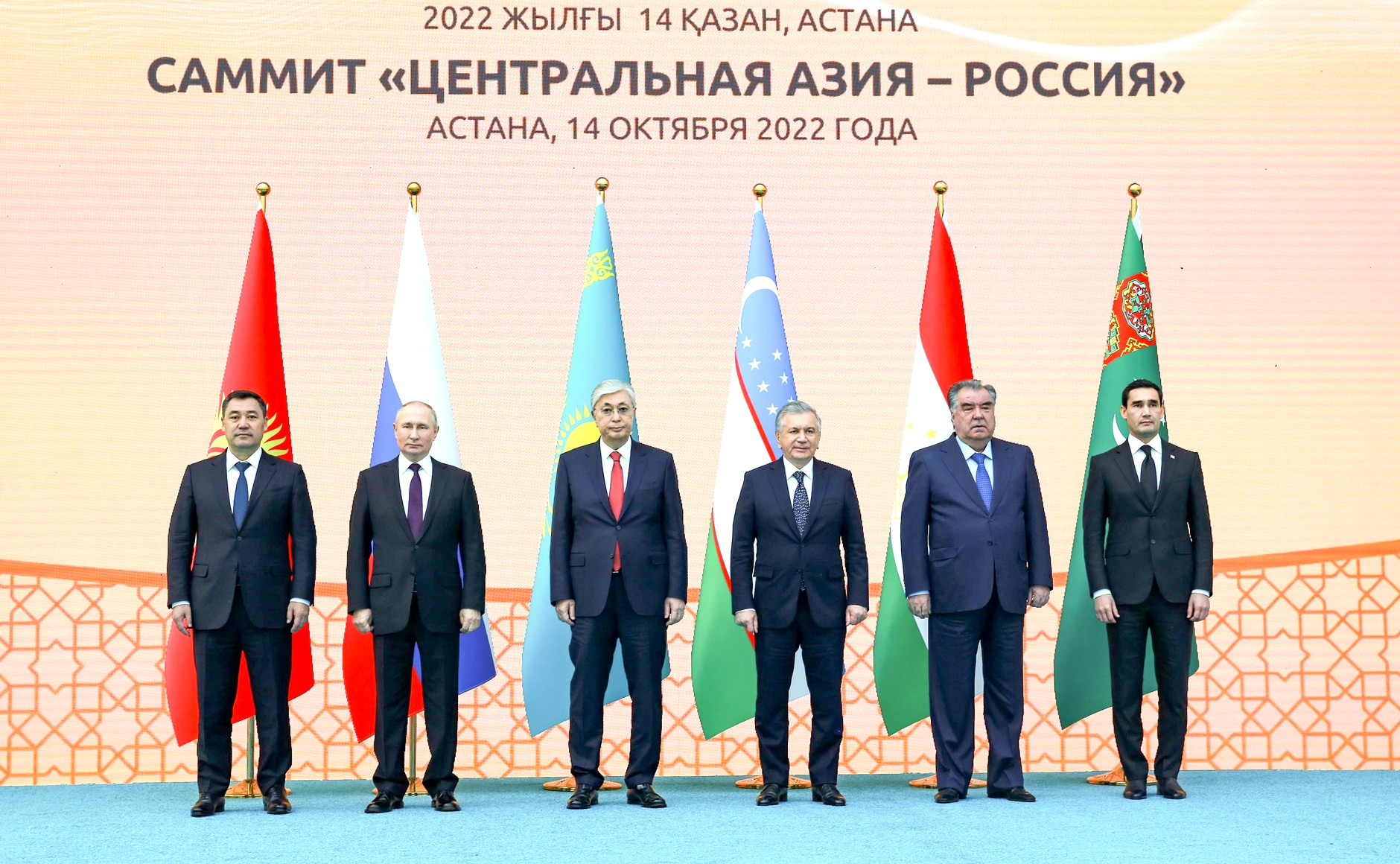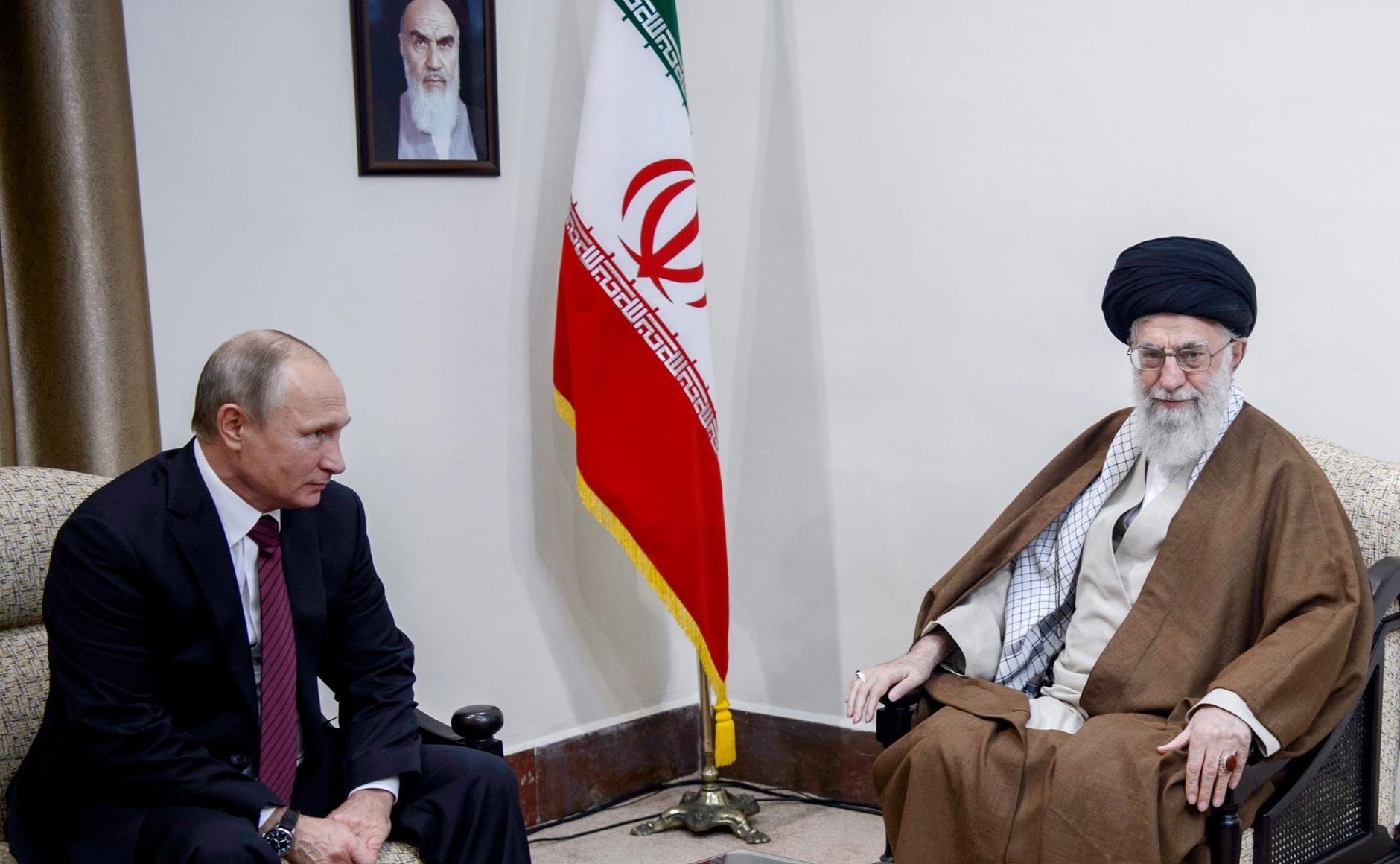
Putin’s War Against Ukraine Diminishing Moscow’s Dominance of Former Soviet Space
Putin’s War Against Ukraine Diminishing Moscow’s Dominance of Former Soviet Space
Executive Summary:
- Russian President Vladimir Putin’s invasion of Ukraine aimed to reassert dominance over the former Soviet space, but Ukraine’s resistance and sustained Western support have instead weakened Moscow’s influence in the region.
- Moscow’s war against Ukraine has led the former Soviet republics to pursue more independent foreign policies as they seek to protect themselves from possible Russian aggression and international isolation.
- Any future effort by Moscow to use military force in other post-Soviet states to reverse this process would likely be counterproductive and could potentially bleed this division back into the Russian Federation itself.
Russian President Vladimir Putin launched his full-scale invasion of Ukraine in part to shore up and expand Moscow’s unchallenged dominance of the former Soviet space. The relative success of Ukrainian resistance and the impact of Putin’s war against Ukraine on Russian actions elsewhere produced the opposite effect, alienating many of the former Soviet republics from Russia and leading them to pursue more independent foreign policies to protect themselves from Russian aggression and international isolation. Putin’s hope that his full-scale invasion would weaken the West and restore Russia’s dominance over the former Soviet republics may have been realized if the war had ended rapidly and decisively. Instead, Ukraine’s determined resistance, international support for the Ukrainian military, and diplomatic deadlock have meant the war has gone on for more than three years, undermining Russia’s relationships with the West and its position across the former Soviet space (see Strategic Snapshot, February 24).
Leaders of the former Soviet republics appear to be realizing that the Russian military is not all-powerful. Moscow’s arrogant responses to such moves, despite its demonstrated lack of military dominance, however, are poisoning ties between Moscow and even countries that had not previously broken with the Kremlin. Outside powers have had greater opportunities to expand their influence as Moscow’s wanes, cementing the Kremlin’s reduced position (see EDM, November 1, 2022, July 31, August 10, October 3, November 6, 2023, July 8, September 12, 2024). Russia is unlikely to recover that power unless Moscow changes its attitudes and approach, something that is unlikely as long as Putin is in power.
Independent Russian journalist Vladimir Solovyev published a comprehensive survey demonstrating how Putin’s war against Ukraine has pushed the post-Soviet space away from the Russian sphere of influence on the Important Stories news site, an outlet the Putin regime has worked to suppress (Vazhnie Istorii, July 16). According to Solovyev, the most dramatic pivots away from Moscow were in the South Caucasus. Moscow has shifted from being the arbiter of relations between Armenia and Azerbaijan, effectively employing divide-and-rule tactics to keep the two at odds, to becoming an adversary of both (see EDM, February 9, 2023, August 15, 2024, January 15, 28, May 20; Radio Svoboda, June 20). Azerbaijani President Ilham Aliyev’s remark on July 19 that Ukraine should not recognize any occupation of its territory as legitimate is emblematic of this shift against the backdrop of a deteriorating Russia–Azerbaijan relationship (see EDM, July 7; President of Azerbaijan; Radio Svoboda, July 19). Aliyev compared the Russian occupation of Ukrainian territory to the Azerbaijani–Armenian conflict over Nagorno-Karabakh, noting that Baku never recognized Armenia’s claim on the land, which is now under Azerbaijan’s control. Statements from former Soviet republics publicly urging another state to deny Moscow’s will would have been unimaginable before 2022 (Radio Svoboda, July 19). Adding insult to injury, Azerbaijan effectively boycotted a meeting of the Commonwealth of Independent States (CIS) in the same week (Aktsenti, July 18).
The rest of the South Caucasus is demonstrating a similar trend. Armenia has moved away from Russian influence by pursuing a peace accord with Azerbaijan, not brokered by Moscow, expanding ties with Türkiye, and strengthening its ties with Europe as its primary foreign policy direction (see EDM, July 17; Radio Svoboda, July 20). Even in Georgia, where Moscow has made progress in restoring its influence, pulling Tbilisi away from the European Union and the North Atlantic Treaty Organization (NATO), anti-Kremlin protests continue, growing to a point that is worrying to some in Moscow (see EDM, April 30, July 15; Ritm Evrazii, July 20).
Other post-Soviet states beyond the South Caucasus are distancing themselves from Moscow as governments recognize Russia’s weakness and unreliability as a partner (Kasparov.ru, July 17). The three Baltic countries, which were never legitimately part of the Soviet Union and were unwilling to join Moscow-led organizations since its fall, have become some of the most staunchly anti-Russian members of the West (see EDM, February 13, 2024, February 20, May 28, June 5). Moldova continues to move toward the West, despite Moscow’s subterfuge aimed at halting its progress (see EDM, July 9). Central Asia, while more cautious than other regions in challenging Moscow, is working hard to build up its military capacities and increasingly looks to the People’s Republic of China, South Asia, and the West rather than to Moscow, especially given Moscow’s xenophobic policies toward migrants from that region (Karavan, May 11, 2022; Kavkazskiy Uzel, April 12, 2024; Dialog. Tadzhikistan i Mir, April 13, 2024; see EDM, May 15, October 22, 2024, July 3, 9, 17). Even Belarus, long the closest ally of Moscow in the former Soviet space, is partially breaking ranks with Russia, releasing 14 political prisoners on June 21 to mark a meeting with U.S. Special Presidential Envoy for Ukraine Keith Kellogg (The Moscow Times, July 16).
Russia’s waning dominance in the post-Soviet space because of the war has highlighted Russia’s weakness and that Moscow has less attention and money to devote to countries other than Ukraine. When Russian officials do interact with these countries, their arrogance and demand for deference have compounded Moscow’s problems. The Kremlin’s deteriorating relationship with Azerbaijan in response to Russia shooting down an Azerbaijani plane at the end of 2024 and the more recent arrest and murder of Azerbaijani activists in Russia is a prime example. Russia is unwilling or unable to adjust its diplomatic behavior to shifting geopolitical realities, even refusing to utilize the “soft power” resources it still has in some post-Soviet countries (Window on Eurasia, August 27, 2024; Vazhnie Istorii, July 16).
The perception of Moscow as weak but arrogant shows no sign of abating, leaving a vacuum in which outside powers can expand their influence. Many non-Russians within the Russian Federation itself are reaching similar conclusions as Putin’s war against Ukraine drags on, something that could prompt them to seek greater autonomy or even complete independence (see YouTube/@thejamestownfoundation9317, July 21). Ukraine is seeking to exploit anti-Russian sentiment both in and outside of the Russian Federation in its fight against the Kremlin (see EDM, June 24). Instead of restoring a Moscow-centric empire, Putin’s war against Ukraine is contributing to a greater desire for autonomy and freedom from Russian influence inside and outside Russia (Window on Eurasia, March 17, 2022).


